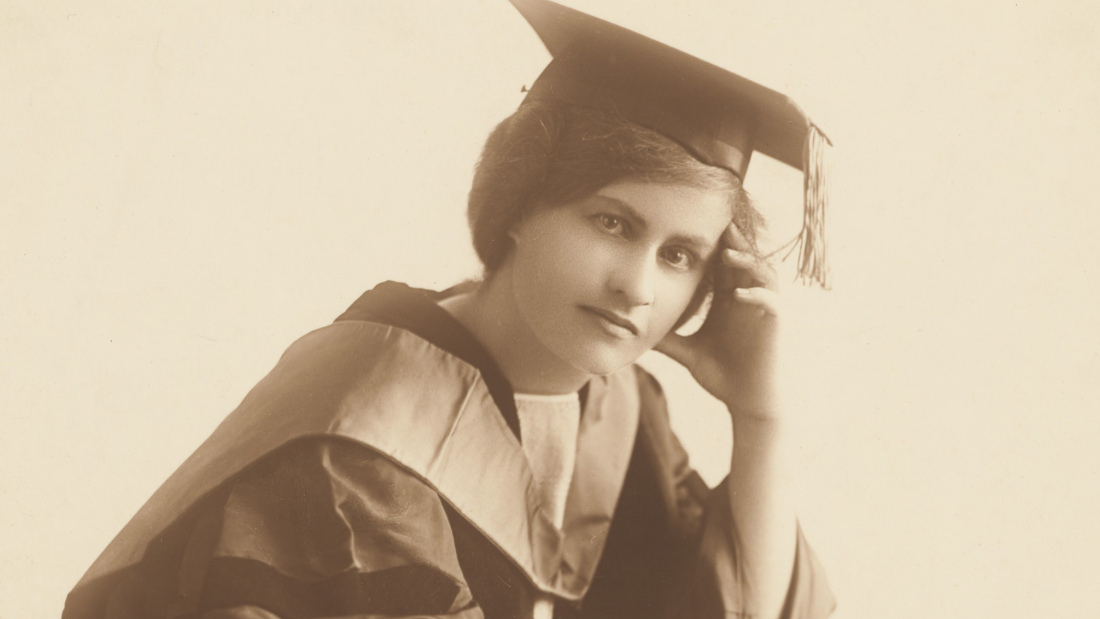A Remarkable Educator with a Singular Vision

Lorna Hodgkinson, Ed.D.’22, came to the Ed School with the first class of students in 1920, all the way from Melbourne, Australia. She went on to become the first woman to receive a doctorate, not just from the Ed School, but across Harvard.
A courageous pathbreaker, Lorna Hodgkinson was the first woman to earn a doctorate at Harvard — and her advocacy for people with disabilities lives on.
Born in 1887, Hodgkinson not only set the stage for other women interested in studying at Harvard, but she also went back to Australia and challenged the country’s neglect of “feeble-minded” students while working as the “superintendent of the education of mental defectives” at the Department of Public Instruction.
“I had to because nobody else would do it, and there is not even a state institution to which such cases can be sent for proper treatment,” Hodgkinson said in a 1925 article in the journal Society.
Her testimony before the Royal Commission on Lunacy Law and Administration, suggesting that Australia’s system for caring for intellectually disabled children was mismanaged, sparked protests from the public, as well as retribution from the minister in charge of the system, who launched a formal inquiry into the legitimacy of her academic credentials. Despite a letter of endorsement from then-HGSE dean Henry W. Holmes, Hodgkinson was stripped of her role in the Department of Public Instruction. Rather than accept a demotion back to public school teaching, Hodgkinson founded her own residential school for students with disabilities — the Sunshine Institute.
Hodgkinson continued to advocate for reform in the care and education of the intellectually disabled, but her focus for the remainder of her career was on the growth of the Sunshine Institute, which operates today as Unisson Disability — and is still inspired by Hodgkinson's advocacy for people with disabilities and their families.
A version of this story appears in the Winter 2020 Harvard Ed. magazine. Additional contribution by Marin Jorgensen.
Learn More and Connect
Read a Usable Knowledge piece and listen to the Harvard EdCast about the disproportionate amount of low-income students and students of color in special education.
Listen to Professor Tom Hehir on the Harvard EdCast discussing the evolution of disabilities education.
